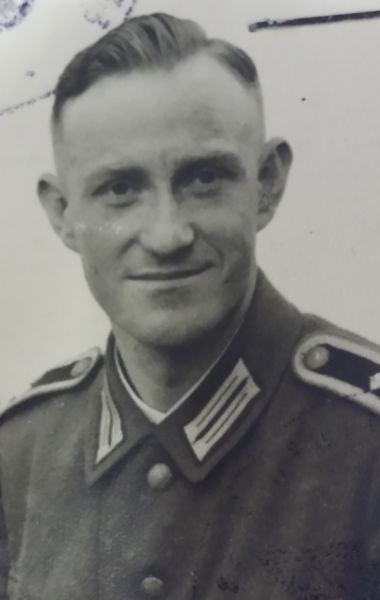Heuer, Heinz
- Date of birth:
- March 2nd, 1918 (Berlin/Brandenburg, Germany)
- Date of death:
- January 6th, 2002
- Nationality:
- German
Biography
Promotions:
April 22nd, 1945: Oberleutnant.
Career:
?: 5. / Flak-Regiment 12, Döberitz;
?: 10. / Flak-Regiment 32, Berlin;
?: Stammtrupp-General Batterie / Heeres Flak Artillerie Ersatz- und Ausbildungsabteilung 273;
November 1st, 1938: Polizei;
?: Hauptquartier Ordnungspolizei.
According to a note in his soldbuch, Heinz Heure was awarded a total of 13 "Sonderabzeichen für das Niederkämpfen von Panzerkampfwagen durch Einzelkämpfer" (2 golden and 3 silver). This note however, as is the Ritterkreuz note, has not been stamped, but was signed. Awarding therefore has not yet completely been proven, but likely.
Do you have more information about this person? Inform us!
- Period:
- Second World War (1939-1945)
- Awarded on:
- November 9th, 1941
- Period:
- Second World War (1939-1945)
- Awarded on:
- November 4th, 1943
- Period:
- Second World War (1939-1945)
- Rank:
- Oberfeldwebel
- Unit:
- Kampfgruppe zur besonderen Verwendung Berlin 5, Heer
- Awarded on:
- April 22nd, 1945
Moving out from Berlin-Weißensee, Heuer identified a Soviet tank unit with about 40-50 tanks assembling at the Döringsee and Kavelberg. A supply unit was in the area of Pietzstall, and individual vehicles were spotted constantly moving between the tank unit and the direction of Helenau. Heuer determined that Soviet command post was likely to be in this area as well, and he thusly made his move on the night of the 20./21.04.1945.
At 01:30 he and a few of his men overpowered the Soviet guards and captured the command post after a short firefight, capturing all the maps and documents located there as they did so. After destroying a Soviet radio vehicle, he and his men succeeding in pulling back to the Spitzerberge. By now other units of his Kampfgruppe had moved to engage the Soviet tanks, and now Heuer himself likewise entered the fray. The Kampfgruppe claimed to have destroyed 27 tanks on this night, of which Heuer personally was credited with knocking out 13 with Panzerfausts. After leaving Leutnant Knackstedt to command the rearguard action, he and a few comrades made their way back to the Friedrichshain bunker.
From here he was brought to General Krebs, and after an hour of studying the documents and maps he was congratulated on his success by the General. Heuer would soon afterwards be decorated with the Knight’s Cross for this action.
Awarding made between 20 and 30 April 1945, probably by General Burgdorf, Head of the HPA in Berlin, after the deviding of the HPA and the moving towards Traunstein or Mürwick/Flensburg. The awarding is not supported by proof in the Bundesarchiv.
- Period:
- Second World War (1939-1945)
- Period:
- Second World War (1939-1945)
- Period:
- Second World War (1939-1945)
- Period:
- Second World War (1939-1945)
- Period:
- Second World War (1939-1945)
- Period:
- Second World War (1939-1945)
- Period:
- Second World War (1939-1945)
- Period:
- Second World War (1939-1945)
- Period:
- Second World War (1939-1945)
- Period:
- Second World War (1939-1945)












